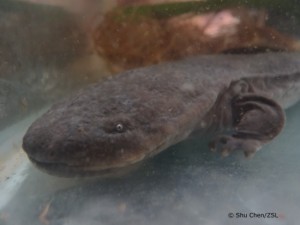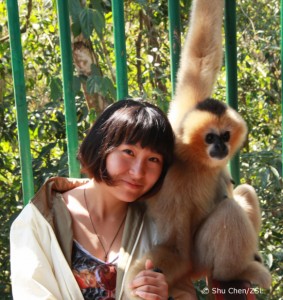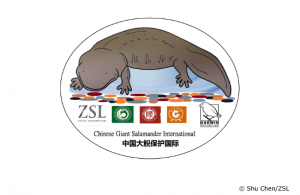Meet Shu Chen, one of our new EDGE Fellows working on the Chinese giant salamander in her native country of China. In this introductory blog, she describes her role in the conservation of this incredible amphibian.

Living in China, I have always had a keen interest in wildlife conservation. I am currently working for the Institute of Zoology, ZSL as the Project Co-ordinator for the Darwin Initiative project “A sustainable future for Chinese giant salamanders”. Alongside this role, I am an EDGE Fellow focusing on Communication, Education and Public Awareness-raising (CEPA) campaigns in China. These campaigns aim to raise the conservation profile of the Chinese giant salamander (Andrias davidianus, CGS hereafter).

The CGS is a national treasure of China and can be regarded as the “freshwater panda”. However, wild CGS populations have experienced 80% declines since the 1950s, and this species is currently on the brink of extinction and requires immediate conservation efforts.

I am honored and excited to be involved in this work as the CGS Project Co-ordinator. I will be responsible for coordinating and keeping the project running, managing the budget, liaising with the local project partners and leading the CEPA campaigns. Through this project and my EDGE Fellowship, I hope to raise CGS conservation awareness in China and encourage local communities, authorities and the public to conserve this Critically Endangered species and its habitats. With the support of the EDGE of Existence programme staff, I feel I can readily achieve these goals. I am excited to be trained in new conservation techniques and skills that will allow me to develop into a future conservation leader in China.